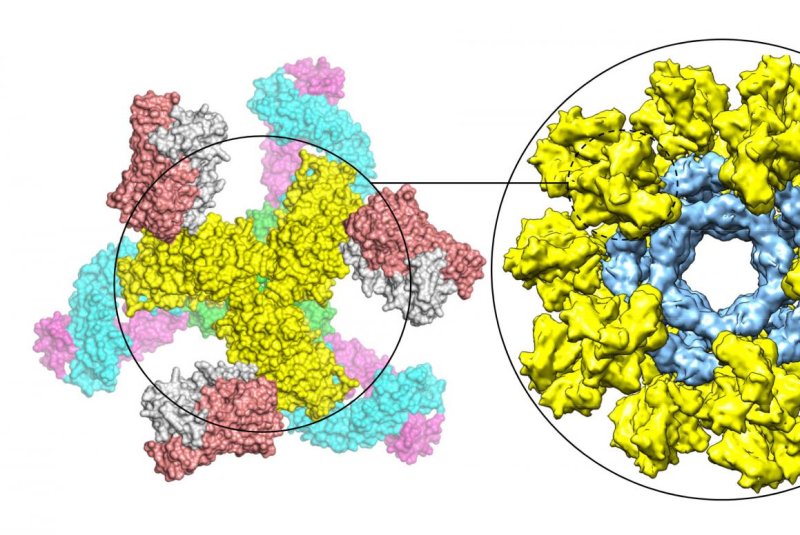Env causes HIV by breaking into a host cell, which gives it the most exposure to the immune system. That makes the molecule a primary focus for researchers fighting the disease. Photo by Jiang Zhu/Scripps Research
Nov. 26 (UPI) -- Researchers may have cleared another hurdle to developing an HIV vaccine.
A study published this month in the journal Science Advances unveiled a new vaccine strategy to stabilize Env, a molecule that could help create immunity to HIV.
More than 1.1 million people in the U.S. and nearly 37 million people around the world have HIV, according to the Department of Health and Human Services.
"We see this new approach as a general solution to the long-standing problems of HIV vaccine design," principal investigator Jiang Zhu, an associate professor in the Department of Integrative Structural and Computation Biology at Scripps Research and principal investigator of the study, said in a press release.
Env causes HIV by breaking into a host cell, which gives it the most exposure to the immune system. That makes the molecule a primary focus for researchers fighting the disease.
Env pops up from the HIV membrane in clusters of three called "trimers," which take on different shapes before and after infection.
Many HIV researchers think that introducing Env to an immune system in its pre-infection shape could lead to an effective HIV vaccine.
Scripps Research scientists are the first to create strong anti-HIV antibodies in mice and rabbits, by binding Env to virus-like particles to imitate the HIV virus.
While the Env imitator can not create a viral replication, it pretends to be an invading virus, triggering a strong reaction from the immune system.
"By now in my lab we've made this modification to Envs from 30 to 40 different HIV strains, and in most of the cases it has worked like a charm," Zhu said.
Researchers at the National Institutes of Health-sponsored Southwest National Primate Center in San Antonio, Texas, are currently conducting Env tests with three vaccine candidates on 24 monkeys.
To date, no HIV vaccine has shown effectiveness in a large scale clinical trial.















